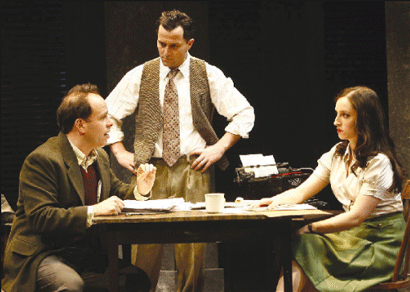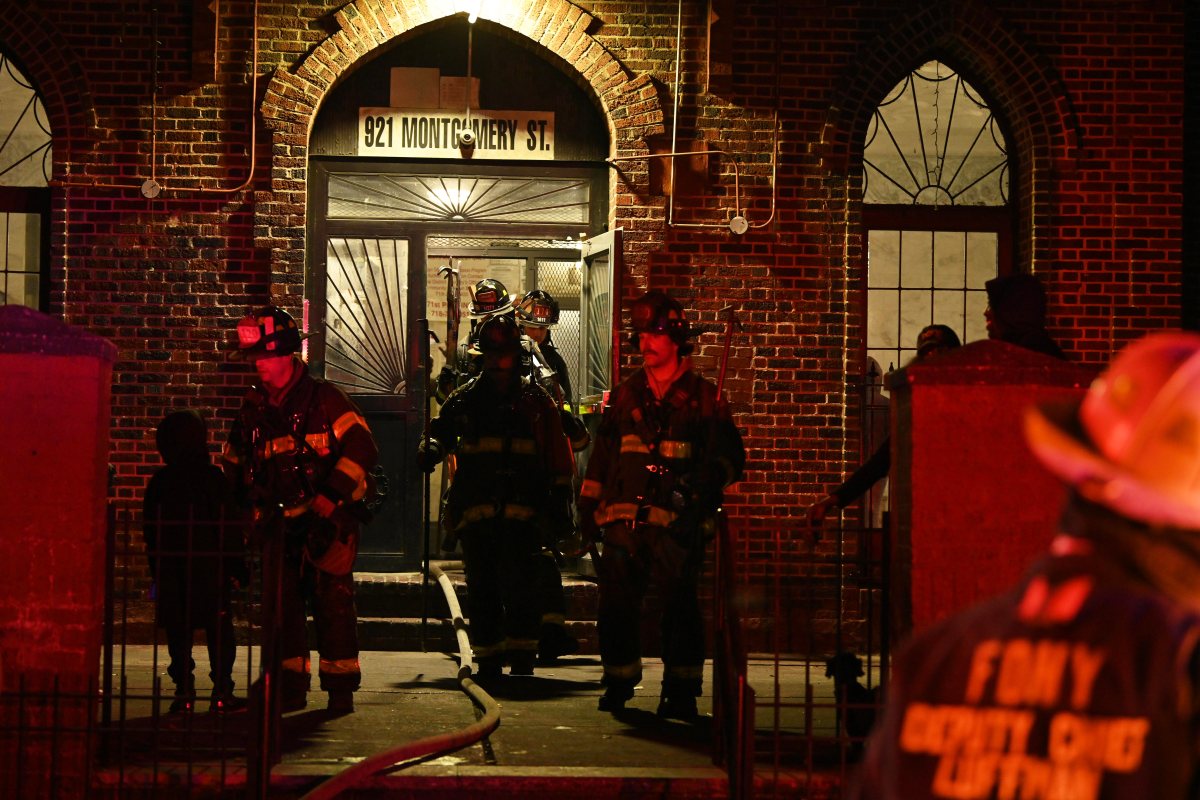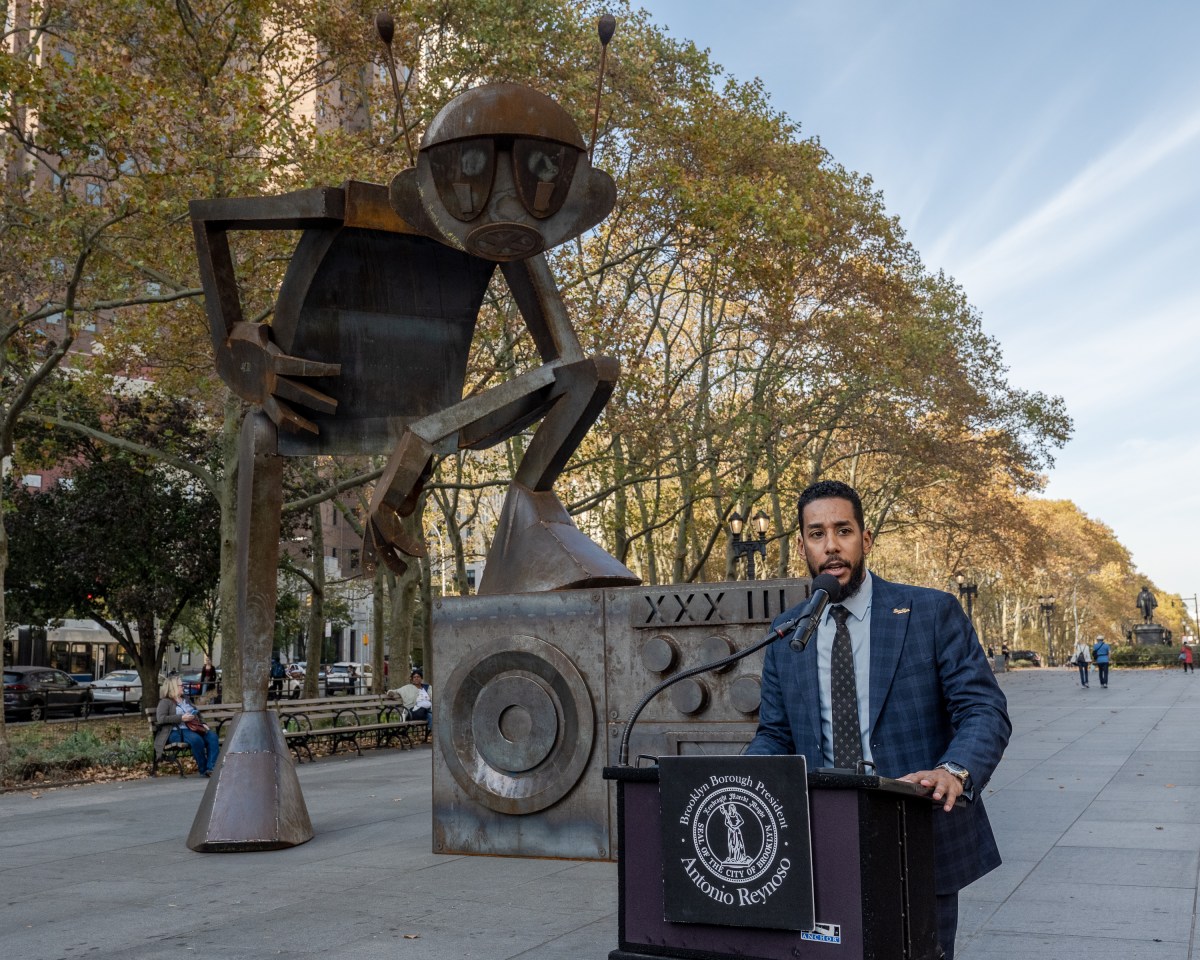By Jerry Tallmer
The very title — “The Accomplices” — is inflammatory. It strikes at the heart of the matter even if Bernard Weinraub wanted to write a play that merely explored the record.
Accomplices in what? In (1) not allowing entry to the United States, back then, of even some small share of the 6 million Jews who were being murdered throughout Europe, (2) in adhering to a widespread conspiracy of silence on the whole unthinkable slaughter.
So who, to one extent or another, were these accomplices?
Why, Franklin D. Roosevelt, president of the United States. The U.S. Department of State; in particular ice-blooded Undersecretary Breckenridge Long. Amiable, worldly-wise, go along/get-along FDR speechwriter Sam Rosenman. Secretary of the Treasury Henry Morgenthau (who tried to persuade FDR to do the right thing, but not hard enough). Charismatic Rabbi Stephen S. Wise (who sometimes tried and sometimes not). The New York Times, and its owners and editors, as well as those punditorial Jewish eminence grises, Walter Lippmann, Arthur Krock, and Cy Sulzberger.
Oh yes, one other rather large bloc: the vast majority of American Jews, circa 1941-’44. (I was one of them, but I was in the Air Force and that’s my out.)
“The Accomplices,” by Bernard Weinraub, whose byline could be found almost daily in a latter-day New York Times during the 35 or so years before his retirement in 2004, opened April 9 as a New Group presentation at the Acorn on 42nd Street’s Theater Row.
It was in fact as a Times reporter that Weinraub, based in Washington in the early ’80s — long before he assumed the Hollywood beat — did a couple of stories on the controversy stirred up by “Who Shall Live and Who Shall Die?,” Laurence Jarvik’s documentary film about the American Jewish community’s response to the Holocaust.
“That film,” says the Weinraub of 2007, “got me interested in a subject I knew nothing about.” It also clued him in to a man named (that is, renamed) Peter Bergson, who would one day become the central character of this, Bernard Weinraub’s first play.
Bergson, a member of the Jewish underground in Palestine, arrived in New York in 1940 at the ripe old age of 25, and proceeded to raise hell for the next four years in an effort to get FDR, the State Department, the whole damn United States off the dime and bring in significant numbers of refugee Jews, most particularly doomed children.
The gates remained closed, despite a much-feared (by the establishment) all-star Madison Square Garden rally, a surreal march on the White House by bearded, black-coated rabbis (“like an army of Shylocks,” said Sam Rosenman, at least in this play), and a series of sock-’em-in-the-eye full-page pro-rescue ads written by brilliant, corrosive Ben Hecht.
“Wake them up,” says Hecht on the desired impact of those ads on the American public. “Say it bluntly. A race of people are being butchered. And the government and the media [note to playwright: No one said “media” in 1940] and the churches and, yes, even the Jews, have closed their eyes.”
Peter Bergson was a younger and trickier cat than Hecht, though no less direct. He would not take No for an answer.
He died in Israel in 2001, before Weinraub got involved in this project. PB’s surviving (second) wife told Weinraub “it was very hard to get hold of the man,” and Bergson’s daughter, a college teacher in Israel, told the playwright: “No matter how many setbacks my father had, he never stayed down.”
Bergson and his pals, despite many ideological divisions, had come out of the Irgun, the most militant of Zionist fighting arms, and had little patience — no patience — for Stephen Wise, Henry Morgenthau, Sam Rosenman, even Franklin D. Roosevelt, or anyone else who today is old enough to still remember just how dangerously anti-Semitic was the pre-Pearl Harbor United States, in which Fritz Kuhn’s German-American Bund was swaggering through the streets of Manhattan; the national hero, Charles A. Lindbergh, was getting medals pinned on him by Herman Goering; and Father Charles Coughlin, the Jew-baiting “radio priest” of Detroit, had a devoted, hate-filled national audience of nearly 40 million — one-third of all radio listeners — every week.
“There was enormous anti-Semitism in this country, and these young guys from Palestine just didn’t get it,” says the Weinraub who was born and raised in the Bronx in a lower-middle-class Jewish household where FDR was God.
“It’s easy enough, now, to say: Stephen Wise should have done this, done that, Roosevelt should have done this, done that, but FDR was not … ’ [Weinraub pauses, thinks] “ … he was not the devil. That would be unfair.”
Stephen Wise, handsome, mellifluous, self-important, but basically on the side of the angels, is in fact — to Weinraub — “the most interesting character in this play, and to me, in some ways, the saddest.” You could think of “The Accomplices” as, essentially, a head-to-head between the blunt force of Peter Bergson (Daniel Sauli) and the agonized rational soft-soap of Rabbi Wise (the estimable David Margulies).
In a drama that, in its author’s words, “is not a documentary but a work of imagination,” Weinraub does put into the mouth of Roosevelt (Jon Devries) the wry, fraught, ambiguous sentence: “Now they want me to bomb Auschwitz.” (One wonders if even FDR knew the place-name Auschwitz before 1944 — and was it the camp or the railroad tracks leading to it that cried out to be bombed?)
“I left it hanging like that,” says Weinraub. “A whole other issue that I couldn’t deal with in this play.” One place that it is, however, dealt with, pro and con, in depth and autobiographical honesty, is Robert L. Beir’s “Roosevelt and the Holocaust” (Barricade Books, 2006).
The one character Weinraub “tried hardest to make three-dimensional” was Breckenridge Long (Robert Hogan), the smooth suave State Department creep whose (successful) tactic in preventing the removal of immigration barriers against Jews was “postpone, postpone, and postpone.”
“There was a malevolence there,” says the playwright. “I’ve read his diaries, and he barely mentions the Holocaust, so oblivious and uncaring is he about the plight of the Jews, so deeply rooted is the anti-Semitism.”
When Bernie Weinraub, whose wife Amy Pascal is a Sony Entertainment executive, was about to close out his often storm-tossed 14 years as Hollywood correspondent of The New York Times, he thought back to his interest in playwriting as an undergraduate, decades earlier, at City College and NYU.
Now, he “kind of faked my way” into a course in advanced playwriting conducted by Simon Levy, who runs the Fountain Theater in Los Angeles. “And I just started writing on this subject. It had a reading at a funny little theater in Orange County, got some praise — and rejections from all over.”
It was then submitted to something called the Stellar Network new-playwriting contest, and the prize that it won was a reading at Off-Broadway’s Atlantic Theater, where one of the judges was Ian Morgan, who now directs the production at the Acorn.
In an interview two years ago about those storm-tossed Hollywood years, Weinraub speaks about The New York Times in The Times as “the newspaper I loved.”
Recall that, Mr. Weinraub?
Yes, he does, of course. “And The Times doesn’t come off well” during the era on which this play is focused. “That’s not news. Every book on The New York Times points out its appalling record on the Holocaust.”
But you still love The Times?
“Of course I do. Sure I do. A great paper. Best paper in the world. Twinges? No twinges. That was then.”
This is now. And in the upper left corner of the front page of The New York Times you will still find, every day, in a little box, the following seven words: ”All the news that’s fit to print.” It’s who decides what’s fit that counts.
THE ACCOMPLICES. By Bernard Weinraub. Directed by Ian Morgan. A New Group presentation, through May 5 at the Acorn Theater, 410 West 42nd Street, (212) 279-4200.

































